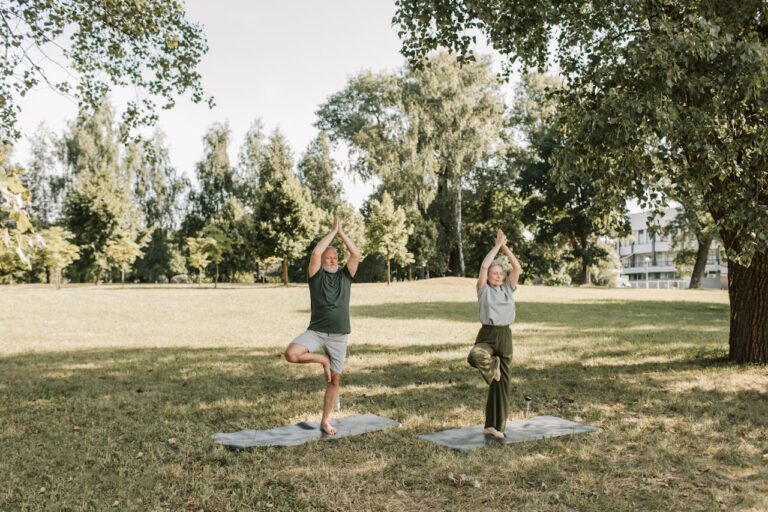Write Us: hello@ali5.org
How to Start a Healthy Morning Routine (Even If You’re Lazy!)
Learn how to build a healthy morning routine, even if you’re not a morning person. These simple, low-effort habits can boost your mood, energy, and focus without overwhelming your day.

Online, you’ve undoubtedly seen pictures of the perfect morning routine: exercising at five in the morning, taking cold showers, journaling, meditation, and eating green smoothies before the sun comes up. Let’s face it, though: the majority of us check our phones while in bed, snooze several times, and wake up half-awake.
The good news? You don’t need to be ultra-disciplined to build a healthier morning routine. You just need to take a few small steps that wake your body and mind gently, and fit your lifestyle.
Here’s how to create a morning routine that’s healthy, doable, and lazy-proof.
1. Don’t Hit Snooze, Sit Up Instead
The first step to a better morning starts the moment your alarm goes off. Hitting snooze may feel good, but it confuses your body and makes you feel groggier due to interrupted sleep cycles.
Try this instead:
- Place your phone or alarm across the room
- As soon as it rings, sit up and swing your legs off the bed
- Drink a glass of water that you leave by your bedside the night before
Sitting up signals to your brain that sleep time is over, and the water helps rehydrate and wake you up.
2. Let in Natural Light ASAP
Light exposure in the morning helps reset your circadian rhythm, boosts serotonin, and supports better sleep later at night.
Simple actions:
- Open your curtains or blinds right after waking up
- Step outside for a few minutes if possible
- Sit by a window while you have your breakfast or scroll through your phone
Even 5–10 minutes of morning light can help reduce fatigue and improve your mood.
3. Do a 2-minute stretch
No need to work out at dawn. Just a couple of minutes of light movement can help loosen your muscles, improve blood flow, and signal your body to get going.
Try this:
- Neck rolls, shoulder shrugs, forward bends
- Cat-cow stretches or child’s pose if you’re still in your bed
- Gentle side stretches or toe touches
You’ll feel more alert and less stiff, without breaking a sweat.
4. Eat Something Small (With Protein)
Skipping breakfast can cause low blood sugar, poor focus, and irritability. You don’t need a full meal, just a quick bite with some protein to help fuel your brain and stabilize energy levels.
Lazy-proof breakfast ideas:
- A boiled egg and toast
- Peanut butter on a banana
- Greek yogurt with honey
- Leftover dinner protein in a wrap
Eating something, even a small can prevent energy crashes later.
5. Avoid Immediate Doomscrolling
Checking messages and social media right after waking up increases stress, comparison, and anxiety. Your brain is still in a semi-dream state and needs time to transition gently into the day.
Better alternatives:
- Play calming music
- Do deep breathing for 1 minute
- Read a short quote or positive thought
- Focus on a small goal or intention for the day
Start your morning with input that energizes, not drains you.
6. Do One Thing You Enjoy
This is the secret to making your morning routine stick. Add something you look forward to, even if it’s small. When your brain associates mornings with joy, you’re more likely to get out of bed willingly.
Ideas:
- A few pages of a good book
- Listening to your favorite podcast
- Making your favorite tea or coffee slowly
- Writing in a simple 1-minute journal
A little pleasure first thing in the morning goes a long way.
7. Keep It Short and Repeatable
Don’t try to overhaul your life in one day. A healthy morning routine should feel simple and realistic, not like a to-do list you dread.
Build a lazy-proof routine like this:
- Wake up + drink water
- Open curtains
- Stretch for 2 minutes
- Eat something
- Avoid your phone for 10–15 minutes
- Add one thing you enjoy
Repeat it for a week before adding anything new.
Final Thoughts
You don’t need a perfect 10-step routine or an early wake-up call to have a healthy start to your day. Just a few small shifts, done consistently, can help you feel more awake, less stressed, and better prepared to handle whatever comes.
The goal isn’t to be perfect. It’s to feel better, one lazy-friendly step at a time.







